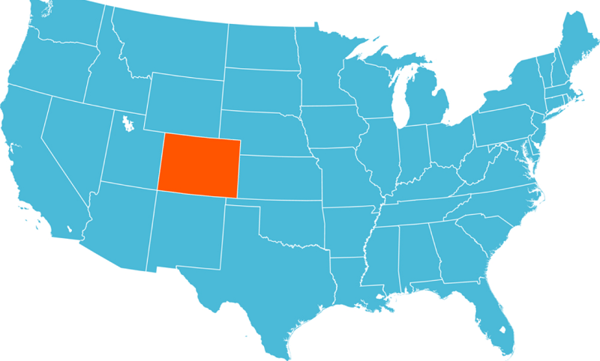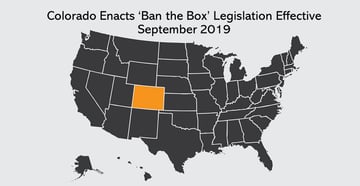Colorado Employers! Prepare for Equal Pay Act Compliance by Jan 2021
This information was originally posted on the JDSupra website by Fisher Phillips, written by LaLonnie Gray.

Colorado’s Equal Pay for Equal Work Act goes into effect on January 1, 2021. It's smart for employers to proactively review the requirements and adjust your procedures now. Here's what you need to know and do.
Colorado’s Equal Pay For Equal Work ActColorado enacted its own pay equity law. Colorado’s Equal Pay Act will soon prohibit an employer from:
- Paying one employee a wage rate less than the rate paid to an employee of a different sex (or sex plus another protected status) for substantially similar work;
- Asking about or relying on an applicant’s salary history;
- Restricting employees from discussing their compensation with other employees;
- Requiring an employee to sign a waiver or other document that prohibits the employee from disclosing his or her wage rate; and
- Discriminating or retaliating against an applicant who fails to disclose his or her wage history.
“Substantially similar work” is to be determined without regard to job title and based on a composite of skill, effort (which may include consideration of shift work), and responsibility.
Colorado’s Equal Pay Act will require employers to announce to all employees any employment advancement opportunities, job openings, and the pay range for the job openings. Similarly, employers must maintain records of job descriptions and wage-rate history for current employees and — for a period of two years after the employment ends — former employees. Employers that violate Colorado’s Equal Pay Act may be liable for economic damages, equitable relief, and the employee’s reasonable attorneys’ fees. And employers that violate the job posting requirements may be required to pay a fine of between $500 and $10,000 for each violation.
Similar to the federal Equal Pay Act, employers can defeat a claim under Colorado’s Equal Pay Act by establishing that a wage differential is justified by one or more of the following factors: (1) a seniority system; (2) a merit system; (3) a system that measures earnings by quantity or quality of production; (4) the geographic location where the work is performed; (5) education, training, or experience to the extent they are reasonably related to the work in question; or (6) travel, if it is a regular and necessary condition of the work performed.
Department Of Labor Equal Pay Transparency Rules
The Colorado Department of Labor recently issued proposed Equal Pay Transparency Rules related to the state’s Equal Pay Act. The Proposed Rules explain the complaint, investigation, and appeal procedures for complaints filed with the Department and discuss the job-posting requirements. With respect to the job-posting requirements, the Department states that all job postings — not limited to promotions — must disclose the following information:
- The hourly or salary compensation or range of hourly or salary compensation for each position; and
- A general description of all of the benefits and other compensation offered to the applicant.
The hourly or salary compensation (or range thereof) must include any bonuses, commissions, or other forms of compensation that the employer is offering for the job. A posted compensation range may extend from the lowest to the highest pay the employer in good faith believes it might pay for the particular job. Employers may ultimately pay more or less than the posted range so long as the posted range was the good-faith and reasonable estimate of the range of possible compensation at the time of the posting.
The general description of employment benefits must include “all employment benefits the employer is offering for the position, including health care benefits; retirement benefits; any benefits permitting paid days off, including sick leave, parental leave, and paid time off or vacation benefits; as well as other benefits that must be reported for federal tax purposes; but not benefits in the form of minor perks.”
The Department also discusses an employer’s obligation to make reasonable efforts to announce, post, or otherwise make known all promotional opportunities to current employees.
- A communication announcing a promotional opportunity must be in writing and include the job title, compensation and benefits, and the means by which employees may apply for the position.
- An employer makes “reasonable efforts” if it uses the employer’s regular and customary method of communication with its employees and, for any employees not reachable by that method, uses an “effective alternative method to notify those employees.”
- If the employer elects to post promotional opportunities rather than providing notice to each employee, the posting must be displayed in each establishment where employees work, in a conspicuous location frequented by employees where it may be easily read during the workday.
Employers must notify all employees of all promotional opportunities and may not limit notice to those employees it deems qualified for the position. Employers, however, may state that applications are open to only those with certain qualifications. Employers must provide notice as follows:
- Colorado employer with a Colorado job: If the employer accepts applicants from outside Colorado, it must notify all of its employees in any state for whom the job would be a promotion.
- Colorado employer with a remote job: If an employer has a job that can be performed anywhere (g., a remote position that could be performed by a Coloradoan), the employer must notify all of its Colorado employees for whom the job would be a promotion.
- Colorado employer with a job outside of Colorado: If the Colorado employer has a job that must be performed outside Colorado and the employer accepts Colorado applicants, it must notify all Colorado employees for whom the job would be a promotion.
All promotional opportunities must include the compensation and benefits in the postings. The Department of Labor will administer a public hearing and review public comments before it adopts the final rules related to Colorado’s Equal Pay Act.
What Should Colorado Employers Do?
You should review your employment policies and procedures now. The policies should include language stating that your organization does not discriminate on the basis of any protected category with respect to the payment of wages. Internal procedures should clearly state that all job postings, including opportunities for promotion, must include the job title, compensation and benefits (as discussed above), and the means by which employees may apply for the position. Internal procedures also might include the method of communicating promotional opportunities to employees.
You must update all job postings to include the compensation and benefits (as discussed above). Job postings also should include a disclaimer related to the posted compensation range. You should continue to stay up-to-date on the Department’s rulemaking process and the forthcoming final rules.



